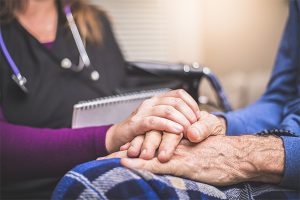
They’re common concerns in older years: fatigue, sleeping problems, lack of appetite. And often, they’re written off as just that. Yet for nearly 8 million elders over age 65, these signs and symptoms are indicative of something significantly more than normal aging – they’re signs and symptoms of elderly mental health problems. And only a small number are obtaining the available treatment that could substantially boost their overall quality of life.
Elderly mental health concerns can be unnoticed in older adults, for a number of reasons. For many, there’s a stigma linked with admitting to and pursuing help for mental and emotional concerns. For others, the assumption is usually that the common outward indications of mental illness and aging go together and should simply be accepted. And sometimes, mental illness signs imitate medication side effects.
Whatever the case, it is critical for family relations to seek out health care if they notice any of the following kinds of behaviors in their senior loved ones:
Sadly, only 7 percent of seniors age 65 and over who potentially have some form of mental illness are in fact receiving treatment, as indicated in a report by the American Journal of Geriatric Psychiatry.
Dr. Susan W. Lehmann, clinical director of the division of geriatric psychiatry and neuropsychiatry and director for the Geriatric Psychiatry Day Hospital at the Johns Hopkins University School of Medicine clarifies, “Indeed, compared with younger adults and middle-aged adults, adults over age 65 were much less likely to be asked by their primary care physician if they felt tense or anxious and were much less likely to be referred by their primary care physician for mental health specialty care.”
The good news is, you can find effective treatment plans for elderly mental health problems. The first step is to consult with the senior’s primary care doctor, who can recommend the very best medication and/or therapeutic options to consider. Midnight Sun Home Care, the top Alaska home health company, will help by escorting the senior to medical appointments and counseling sessions, picking up medications and providing reminders, and serving as a caring companion to share in conversations and to pick up on any changes that could indicate the necessity for further assistance. Contact us online or at (907) 677-7890 for more information.